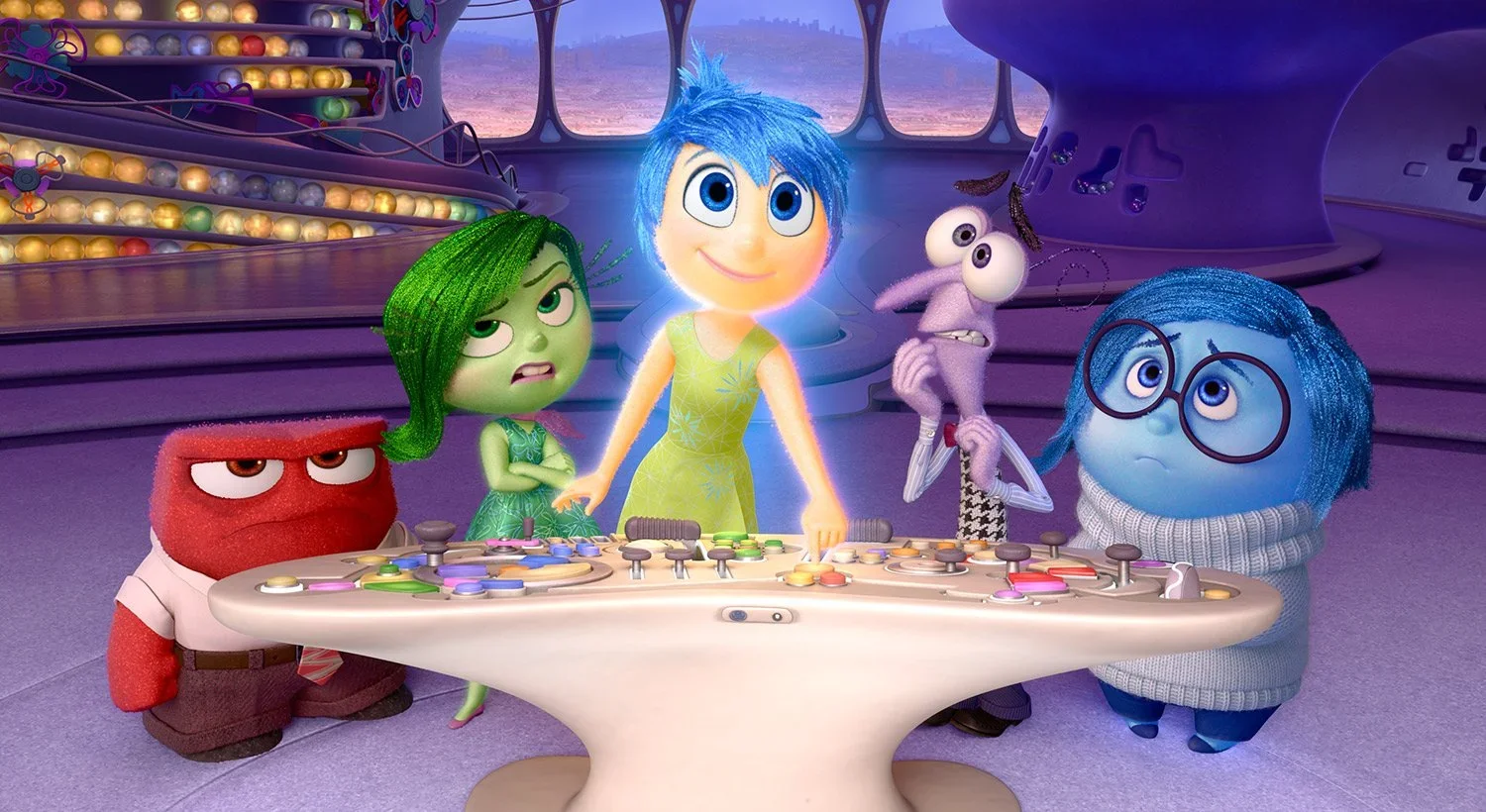#182: Inside Out
Release Date: June 19th, 2015
Format: Streaming (Disney+)
Written by: Josh Cooley, Pete Docter, and Meg LeFauve
Directed by: Pete Docter
4 Stars
The film Inside Out exemplifies what Pixar does best: it tenderly probes the aspects of life that a child can feel, but can’t grasp. And in doing so, the film challenges younger viewers, rather than pandering to them (as the majority of children’s films do).
It’s this quality that appeals to adults, too. Pixar’s most affecting films (and Inside Out might be their best) tap into our own memories of childhood, where we can relive our own development and reflect on our own experiences, with emotions ranging from nostalgia to regret to thankfulness.
The movie is about a young girl named Riley Anderson, who moves with her mother and father from small-town Minnesota to dreary San Francisco. She’s forced to leave behind her childhood friends and her hockey team, and this challenges her fragile young psyche, represented by five personified emotions that live in her mind: Joy, Sadness, Fear, Disgust, and Anger.
When Riley lived within the friendly, confident confines of her stable childhood environment back in Minnesota, these five guardians of Riley’s mind had it easy. Sure, Riley was susceptible to the occasional feeling of sadness, or anger, or fear, or disgust, but overwhelmingly she produced glowing moments of joy.
But now that she’s in the big city, she is thrust into these negative feelings that threaten to infect and destroy her very identity.
What we learn, what Pixar challenges us with, concerns our own conception of emotional truth. Yes, joy is powerful and worth pursuing, but it is not immune from the human condition, which includes a range of equally powerful emotions.
It’s a lovely message that brought tears to my eyes by the film’s conclusion.
Postscript: I haven’t seen all of Pixar’s films, but of the ones I’ve seen, it does seem like they have a specific target audience that coincides with their films’ writers and creators: upper-middle class, mostly white Americans, who come from nuclear families living in suburbia (Toy Story, Monsters Inc., The Incredibles). Inside Out fits that mold as well. I don’t hold this against the films’ quality (they’re all beautifully written and realized), but in the case of Inside Out, it does inform the film’s plot significantly. For example, at her lowest, Riley still has two loving, educated, emotionally available parents and a safe, clean home. She is living a better quality of life than 99% of children in the world, and 99.9999999% of children in the world that came before her. Is there a criticism of Inside Out that it’s too congratulatory of Riley’s character arc? That it understates her privilege? Definitely.
